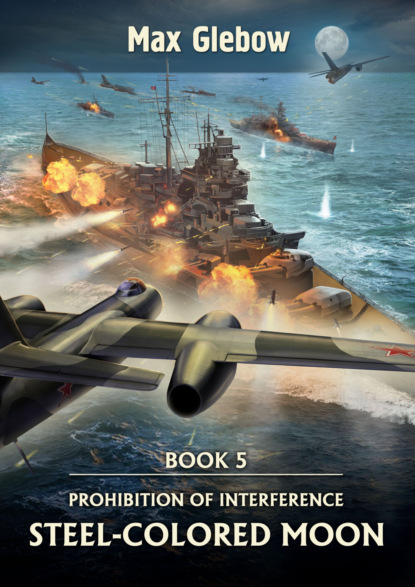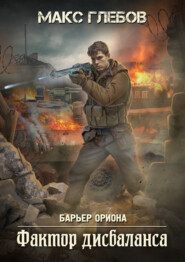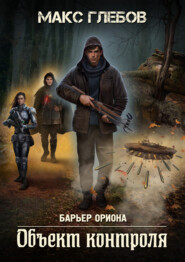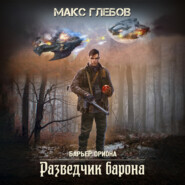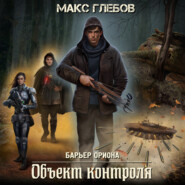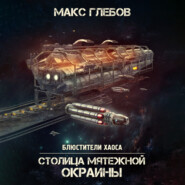По всем вопросам обращайтесь на: info@litportal.ru
(©) 2003-2024.
✖
Prohibition of Interference. Book 5. Steel-colored Moon
Настройки чтения
Размер шрифта
Высота строк
Поля
“But who set their tasks, coordinated their actions, led their fleets and armies? Wait a minute, though… I think I understand. They united, using regular fleet, police and army communications systems and built their own vertical chain of command, as if there was no virtual psychosis. Reality was different for them.”
“That's about the way it happened. At first there was chaos, but then those who fell ill organized themselves very quickly, outstripping ordinary citizens, even the military and law enforcement officers. True, not everywhere. In some colonies sick people were quickly isolated, and then the army and fleet put up serious resistance to the rebel forces.”
“Where did this disease come from?”
“It is believed that this is an undocumented and unaccounted for negative effect of the "VIRT-N" technology with a pseudo-infinite number of virtual degrees of freedom. The manufacturer promised complete indistinguishability from reality, but the new virtuality proved to be stronger for human consciousness than the real world. This effect was not immediately apparent. They were in such a hurry to bring this technology to market that they limited the trials to three months, while more time was needed for the accumulation of critical changes in the user's neural connectivity system. And it also needed a jolt – some kind of peak load on the brain, which would switch the perception of the world from real to virtual, that is, replace one world with another.”
“And what was the trigger?”
“The launch of the galactic hypernet. After it went live, the time spent by an average user in virtuality increased by a third. The release of a number of new-generation games specifically tailored to the VIRT-N technology was timed to coincide with the launch of the unified network. This proved to be sufficient.”
“What happened next?”
“Mankind split in two. There were fewer rebels, or rather sick people, but they were much more motivated and had absolutely no fear of death, although they did not seek it – quite expected behavior for someone who thinks he is in a game or a training battle where it is a shame to die, but death is not real.”
“Who was winning the war when the rebel cruiser attacked the Moonbase?”
“There is no information. The colonies stopped communicating and disappeared from the hypernet one by one. A wave of rebellion swept even the outlying independent planets. Metropolis went silent a week before the Moonbase was hit. I have no more recent data.”
“After all, we killed ourselves… There was no outside factor. It was the same as with everyone else before us, only we lasted a little longer.”
“It is premature to speak of the complete death of civilization. Some part of the population may have survived, but my prediction algorithms allow me to say that with a 98 percent probability the Sixth Republic has ceased to exist as a single interstellar state. The war led to the mass death of qualified specialists and the destruction of the most important scientific, technological and educational centers. In the coming decades, those who have survived will be in for a technological setback of two or three hundred years, with possible further regression.”
* * *
Henning von Tresckow hated the Nazis in general and Hitler in particular, but this did not prevent him from serving honestly in the Wehrmacht. At the age of sixteen, Henning volunteered for the army and fought on the fronts of World War I. He finished the war as a lieutenant and Knight of the Iron Cross.
In 1936 von Tresckow graduated from the Military Academy and was assigned to the Operations Directorate of the General Staff. For the Polish campaign he received the Iron Cross First Class, went through France and participated in Operation Barbarossa.
He categorically did not welcome the two-front war, nor did he welcome the repression of Jews and Communists in Germany and the occupied countries. His superiors appreciated von Tresckow, but were openly wary of his anti-Nazi views, so he was not at all surprised by the summons to his immediate superior, nor by the first words of General Gersdorf:
“Colonel, be careful what you say. You are a competent officer, but you have to take modern realities into account. The shootings of Jews and Communists are protested by many here, but few risk expressing their indignation so openly.”
“Understand, Herr General,” von Tresckow stubbornly refused to admit his mistake, “Germany will finally lose its honor, and this will be felt for hundreds of years. The blame for this will not be placed on Hitler alone, but on you and me, on our wives and children.[1 - Henning von Tresckow; January 10, 1901 – July 21, 1944 – Major General of the German Army, one of the most active participants of the conspiracy against Hitler. Beginning in 1942, he was preparing an assassination attempt on Hitler. It was then that he came into contact with the members of the conspiracy in Berlin. Von Tresckow became the organizer of the assassination attempt on Hitler in Smolensk on March 13, 1943. He tricked one of the officers accompanying the Führer into sneaking a bomb on his plane. Tresckow asked an officer in Hitler's entourage to deliver a small parcel to Colonel Stiff of the Upper Command of the Armed forces in Berlin. According to the legend, the package contained two bottles of French Quantro liquor. The officer agreed, and the package was handed to him at the airplane ramp. However, the fuse did not go off and Hitler survived. That time von Tresckow was able to avoid exposure, once again resorting to deception and making sure that the "package" did not reach the addressee. Later von Tresckow tried to arrange his transfer to Hitler's Headquarters, to have more opportunities to organize an assassination attempt, but was unsuccessful in doing so. In 1944, after learning of the failure of Stauffenberg's attempt to blow up Hitler, von Tresckow told his aide-de-camp: “They will soon find out about me and try to get the names of our comrades out of me. In order to warn them, I must sacrifice my life. ”To deflect suspicion from his comrades and relatives, he attempted to fake his death in battle. Once on the neutral strip, von Tresckow opened fire with a pistol and then blew himself up with a grenade. This helped for a while, but later investigations revealed his involvement in the conspiracy, and von Tresckow's relatives were subjected to reprisals. Von Tresckow's words about Germany's loss of honor quoted in the book were indeed said by him to a fellow officer.]”
“Don't speak so loud, Colonel,” Gersdorff grimaced. “You're putting me in a terrible position. I couldn't agree more with what you said, but your behavior draws completely unnecessary attention. Let's stop this conversation immediately. I hope it's not too late. I called you here for a reason. A certain Colonel Richtengden from the Abwehr wants to see you.”
“And what does counterintelligence need from a humble staff officer?” von Tresckow grinned wryly, but the General saw concern in his eyes.
“I hope it has nothing to do with your intemperate words, Colonel,” Gersdorf looked away. “Officially, Richtengden said he wanted to talk to you about the actions of some Russian during the fighting for the Dnieper last September.”
Von Tresckow nodded, showing that he had heard the answer. The occasion was strange, and hardly the real reason for the visit to the front by a high-ranking Abwehr officer. The Colonel was well aware of this, as was his immediate superior.
Colonel Richtengden had not arrived alone. Beside him in the room where Treskov was invited, an officer vaguely familiar to Henning with the rank of major was present. Tresckow had definitely seen him somewhere before, and for some reason it seemed to him that this man can not be here.
“Don't you recognize me, Herr Oberst?” the Major smiled. “I saw you at von Kleist's headquarters near Kremenchuk during the forcing of the Dnieper. Does that ring any bells?”
“Erich von Schliemann!” Tresckow could not believe his eyes. Now he remembered where he knew the face from. “But you were captured! You were captured by those Russian saboteurs who caused so much trouble to the First Panzer Group.”
“You have a good memory,” Schliemann nodded, “You and I barely spoke at the time, but you remembered everything you needed to know. I can feel the grip of a real staff officer.”
“But how…”
“With your permission, I will omit the details, Herr Oberst,” Schliemann's smile disappeared from his face. “Let me just say that I have indeed been in captivity, and I did not like what I saw there. But we are not here to discuss my memories.”
“I understand that,” nodded Tresckow.
“We are aware of your views, Colonel,” said Richtengden, who had been quiet until then, “You don't hide them much.”
“So that's the real reason for your visit after all,” Tresckow grinned mirthlessly, “But why the Abwehr? I thought the Gestapo was in charge of such matters.”
“Well, in this matter, the secret police really should have acted more carefully,” Richtengden glanced pointedly at Tresckow, “In your case, they clearly underperformed.”
“What do you mean by that?” An unpleasant chill ran down Henning's spine.
“First of all, your contacts with secret opposition groups aiming to remove Hitler from power,” Schliemann shrugged. “After all, surnames like Gördeler and Stauffenberg should tell you a lot.”
“I don't understand you…”
“You understand everything perfectly well, Colonel,” Tresckow was interrupted by Richtengden sharply, but without any threat in his voice. “I could name a dozen more names. However, why shake the air? You'd better check out a couple of curious documents.”
At Richtengden's nod, Major Schliemann held out a thin folder to Tresckow. Henning carefully read two sheets of typewritten text and looked up at the Abwehr officers.
“Am I under arrest?”
“As you quite rightly pointed out, Colonel, we are not from the Gestapo, so you can forget about the arrest,” answered Richtengden dryly, “But from now on I would advise you to be more careful with your words. Now we're going to ask you some questions about the Russian marksman, you witnessed the hunt for him in September, and I would be very grateful if, for anyone who asks you what the Abwehr wanted from you, you would confine yourself to that part of our conversation.
And here's the other thing. In a few days you will be transferred to Berlin, to the headquarters of the tank army being formed, with General Rommel in command. We recommended you to Colonel General Halder as a very promising staff officer, and he hopes that your appearance in the capital will benefit the common cause of our victory over the enemies of the Reich. Am I making myself clear enough?”
“More than enough, Herr Oberst,” von Tresckow nodded, feeling that the extreme nervous tension was beginning to release him, gradually being replaced by entirely different feelings.
Chapter 2
The blockade of Leningrad could not be completely lifted. Despite a very brisk start to the operation, the Volkhov Front troops were able to achieve only partial success. Colonel General Küchler, spurred on by threats of reprisals from Berlin, was able to regroup his divisions and force them to consolidate their position southwest of the Mga River.
After a week of fierce fighting, the Second Shock Army occupied Luban and continued its offensive along the Moscow highway. Taking advantage of the fact that the Germans had moved all their available reserves against General Klykov, the troops of the Leningrad Front broke through the front and were able to advance five or seven kilometers toward the soldiers of the Second Shock Army.
Perfectly aware that right now the Russians would cut off his left flank divisions and pin them to the shore of Lake Ladoga, von Küchler ordered his troops to immediately withdraw from the area of Schlisselburg and Sinyavino. It was these divisions that eventually halted the further advance of the Second Shock Army, and the offensive of the Leningrad front troops ran out of steam all by itself, as the defenders of the besieged city were able to allocate too few forces and ammunition for this operation.
The Headquarters of the Supreme High Command planned to defeat Army Group North, but it failed. Nevertheless, the Red Army managed to break the siege. The withdrawal of the Germans from Schlisselburg and Sinyavino led to the formation of a 20-kilometer corridor along the shore of Lake Ladoga, which connected the city with the "big land". At this point the forces of the Volkhov front finally ran out, and General of the Army Zhukov ordered the troops to go on the defensive.
On the whole gigantic front from Lake Ladoga to the Black Sea there was an operational pause. Both the Red Army and the Wehrmacht had huge problems with literally everything. The troops needed rest and reinforcements. The industry could not cope with replenishing losses in equipment and supplying the troops with ammunition. As a result, only one significant event occurred at the end of January: the Germans completely stopped using chemical weapons. They never responded to the ultimatum, but I saw the remnants of the chemical shells and bombs being loaded into wagons and sent back to German territory.
Stalin took this news with great satisfaction. In general, lately he felt more and more confident in his own strength. The cunning Georgian showed himself to be an experienced politician in the ultimatum story as well. At one time I offered to tell the Germans that if they refused to use chemical warfare agents, we would not use thermite shells and fuel-air explosive munitions on the Eastern Front. However, as it turned out, Comrade Stalin thought it would be enough for us to give up only the thermite ammunition, and now I think he was very pleased with that decision. Despite the fact that I came here from a very different era and had a lot of high technology at my disposal, the Supreme Commander could clearly give a head start to me in political games.
As I suspected, the Corps was taken away from me. Zhukov was satisfied with my actions, and it seems he had already made some far-reaching plans for me, but the other members of the Headquarters of the Supreme High Command seemed to have their own ideas about the fate of Comrade Nagulin, and Georgy Konstantinovich was clearly in the minority.
I didn't want to wait until some unexpected ideas for applying my abilities came into the restless heads of Stalin, Beria, or Shaposhnikov. I had to retain the initiative, otherwise it's very easy to lose my way and go somewhere away from the intended goal. I should have thought very seriously about my future actions. The situation at the fronts stabilized, and the Soviet Union, seemed to be no longer threatened by military catastrophe. A simple and straightforward solution suggested itself, and at first glance it looked obvious.
“That's about the way it happened. At first there was chaos, but then those who fell ill organized themselves very quickly, outstripping ordinary citizens, even the military and law enforcement officers. True, not everywhere. In some colonies sick people were quickly isolated, and then the army and fleet put up serious resistance to the rebel forces.”
“Where did this disease come from?”
“It is believed that this is an undocumented and unaccounted for negative effect of the "VIRT-N" technology with a pseudo-infinite number of virtual degrees of freedom. The manufacturer promised complete indistinguishability from reality, but the new virtuality proved to be stronger for human consciousness than the real world. This effect was not immediately apparent. They were in such a hurry to bring this technology to market that they limited the trials to three months, while more time was needed for the accumulation of critical changes in the user's neural connectivity system. And it also needed a jolt – some kind of peak load on the brain, which would switch the perception of the world from real to virtual, that is, replace one world with another.”
“And what was the trigger?”
“The launch of the galactic hypernet. After it went live, the time spent by an average user in virtuality increased by a third. The release of a number of new-generation games specifically tailored to the VIRT-N technology was timed to coincide with the launch of the unified network. This proved to be sufficient.”
“What happened next?”
“Mankind split in two. There were fewer rebels, or rather sick people, but they were much more motivated and had absolutely no fear of death, although they did not seek it – quite expected behavior for someone who thinks he is in a game or a training battle where it is a shame to die, but death is not real.”
“Who was winning the war when the rebel cruiser attacked the Moonbase?”
“There is no information. The colonies stopped communicating and disappeared from the hypernet one by one. A wave of rebellion swept even the outlying independent planets. Metropolis went silent a week before the Moonbase was hit. I have no more recent data.”
“After all, we killed ourselves… There was no outside factor. It was the same as with everyone else before us, only we lasted a little longer.”
“It is premature to speak of the complete death of civilization. Some part of the population may have survived, but my prediction algorithms allow me to say that with a 98 percent probability the Sixth Republic has ceased to exist as a single interstellar state. The war led to the mass death of qualified specialists and the destruction of the most important scientific, technological and educational centers. In the coming decades, those who have survived will be in for a technological setback of two or three hundred years, with possible further regression.”
* * *
Henning von Tresckow hated the Nazis in general and Hitler in particular, but this did not prevent him from serving honestly in the Wehrmacht. At the age of sixteen, Henning volunteered for the army and fought on the fronts of World War I. He finished the war as a lieutenant and Knight of the Iron Cross.
In 1936 von Tresckow graduated from the Military Academy and was assigned to the Operations Directorate of the General Staff. For the Polish campaign he received the Iron Cross First Class, went through France and participated in Operation Barbarossa.
He categorically did not welcome the two-front war, nor did he welcome the repression of Jews and Communists in Germany and the occupied countries. His superiors appreciated von Tresckow, but were openly wary of his anti-Nazi views, so he was not at all surprised by the summons to his immediate superior, nor by the first words of General Gersdorf:
“Colonel, be careful what you say. You are a competent officer, but you have to take modern realities into account. The shootings of Jews and Communists are protested by many here, but few risk expressing their indignation so openly.”
“Understand, Herr General,” von Tresckow stubbornly refused to admit his mistake, “Germany will finally lose its honor, and this will be felt for hundreds of years. The blame for this will not be placed on Hitler alone, but on you and me, on our wives and children.[1 - Henning von Tresckow; January 10, 1901 – July 21, 1944 – Major General of the German Army, one of the most active participants of the conspiracy against Hitler. Beginning in 1942, he was preparing an assassination attempt on Hitler. It was then that he came into contact with the members of the conspiracy in Berlin. Von Tresckow became the organizer of the assassination attempt on Hitler in Smolensk on March 13, 1943. He tricked one of the officers accompanying the Führer into sneaking a bomb on his plane. Tresckow asked an officer in Hitler's entourage to deliver a small parcel to Colonel Stiff of the Upper Command of the Armed forces in Berlin. According to the legend, the package contained two bottles of French Quantro liquor. The officer agreed, and the package was handed to him at the airplane ramp. However, the fuse did not go off and Hitler survived. That time von Tresckow was able to avoid exposure, once again resorting to deception and making sure that the "package" did not reach the addressee. Later von Tresckow tried to arrange his transfer to Hitler's Headquarters, to have more opportunities to organize an assassination attempt, but was unsuccessful in doing so. In 1944, after learning of the failure of Stauffenberg's attempt to blow up Hitler, von Tresckow told his aide-de-camp: “They will soon find out about me and try to get the names of our comrades out of me. In order to warn them, I must sacrifice my life. ”To deflect suspicion from his comrades and relatives, he attempted to fake his death in battle. Once on the neutral strip, von Tresckow opened fire with a pistol and then blew himself up with a grenade. This helped for a while, but later investigations revealed his involvement in the conspiracy, and von Tresckow's relatives were subjected to reprisals. Von Tresckow's words about Germany's loss of honor quoted in the book were indeed said by him to a fellow officer.]”
“Don't speak so loud, Colonel,” Gersdorff grimaced. “You're putting me in a terrible position. I couldn't agree more with what you said, but your behavior draws completely unnecessary attention. Let's stop this conversation immediately. I hope it's not too late. I called you here for a reason. A certain Colonel Richtengden from the Abwehr wants to see you.”
“And what does counterintelligence need from a humble staff officer?” von Tresckow grinned wryly, but the General saw concern in his eyes.
“I hope it has nothing to do with your intemperate words, Colonel,” Gersdorf looked away. “Officially, Richtengden said he wanted to talk to you about the actions of some Russian during the fighting for the Dnieper last September.”
Von Tresckow nodded, showing that he had heard the answer. The occasion was strange, and hardly the real reason for the visit to the front by a high-ranking Abwehr officer. The Colonel was well aware of this, as was his immediate superior.
Colonel Richtengden had not arrived alone. Beside him in the room where Treskov was invited, an officer vaguely familiar to Henning with the rank of major was present. Tresckow had definitely seen him somewhere before, and for some reason it seemed to him that this man can not be here.
“Don't you recognize me, Herr Oberst?” the Major smiled. “I saw you at von Kleist's headquarters near Kremenchuk during the forcing of the Dnieper. Does that ring any bells?”
“Erich von Schliemann!” Tresckow could not believe his eyes. Now he remembered where he knew the face from. “But you were captured! You were captured by those Russian saboteurs who caused so much trouble to the First Panzer Group.”
“You have a good memory,” Schliemann nodded, “You and I barely spoke at the time, but you remembered everything you needed to know. I can feel the grip of a real staff officer.”
“But how…”
“With your permission, I will omit the details, Herr Oberst,” Schliemann's smile disappeared from his face. “Let me just say that I have indeed been in captivity, and I did not like what I saw there. But we are not here to discuss my memories.”
“I understand that,” nodded Tresckow.
“We are aware of your views, Colonel,” said Richtengden, who had been quiet until then, “You don't hide them much.”
“So that's the real reason for your visit after all,” Tresckow grinned mirthlessly, “But why the Abwehr? I thought the Gestapo was in charge of such matters.”
“Well, in this matter, the secret police really should have acted more carefully,” Richtengden glanced pointedly at Tresckow, “In your case, they clearly underperformed.”
“What do you mean by that?” An unpleasant chill ran down Henning's spine.
“First of all, your contacts with secret opposition groups aiming to remove Hitler from power,” Schliemann shrugged. “After all, surnames like Gördeler and Stauffenberg should tell you a lot.”
“I don't understand you…”
“You understand everything perfectly well, Colonel,” Tresckow was interrupted by Richtengden sharply, but without any threat in his voice. “I could name a dozen more names. However, why shake the air? You'd better check out a couple of curious documents.”
At Richtengden's nod, Major Schliemann held out a thin folder to Tresckow. Henning carefully read two sheets of typewritten text and looked up at the Abwehr officers.
“Am I under arrest?”
“As you quite rightly pointed out, Colonel, we are not from the Gestapo, so you can forget about the arrest,” answered Richtengden dryly, “But from now on I would advise you to be more careful with your words. Now we're going to ask you some questions about the Russian marksman, you witnessed the hunt for him in September, and I would be very grateful if, for anyone who asks you what the Abwehr wanted from you, you would confine yourself to that part of our conversation.
And here's the other thing. In a few days you will be transferred to Berlin, to the headquarters of the tank army being formed, with General Rommel in command. We recommended you to Colonel General Halder as a very promising staff officer, and he hopes that your appearance in the capital will benefit the common cause of our victory over the enemies of the Reich. Am I making myself clear enough?”
“More than enough, Herr Oberst,” von Tresckow nodded, feeling that the extreme nervous tension was beginning to release him, gradually being replaced by entirely different feelings.
Chapter 2
The blockade of Leningrad could not be completely lifted. Despite a very brisk start to the operation, the Volkhov Front troops were able to achieve only partial success. Colonel General Küchler, spurred on by threats of reprisals from Berlin, was able to regroup his divisions and force them to consolidate their position southwest of the Mga River.
After a week of fierce fighting, the Second Shock Army occupied Luban and continued its offensive along the Moscow highway. Taking advantage of the fact that the Germans had moved all their available reserves against General Klykov, the troops of the Leningrad Front broke through the front and were able to advance five or seven kilometers toward the soldiers of the Second Shock Army.
Perfectly aware that right now the Russians would cut off his left flank divisions and pin them to the shore of Lake Ladoga, von Küchler ordered his troops to immediately withdraw from the area of Schlisselburg and Sinyavino. It was these divisions that eventually halted the further advance of the Second Shock Army, and the offensive of the Leningrad front troops ran out of steam all by itself, as the defenders of the besieged city were able to allocate too few forces and ammunition for this operation.
The Headquarters of the Supreme High Command planned to defeat Army Group North, but it failed. Nevertheless, the Red Army managed to break the siege. The withdrawal of the Germans from Schlisselburg and Sinyavino led to the formation of a 20-kilometer corridor along the shore of Lake Ladoga, which connected the city with the "big land". At this point the forces of the Volkhov front finally ran out, and General of the Army Zhukov ordered the troops to go on the defensive.
On the whole gigantic front from Lake Ladoga to the Black Sea there was an operational pause. Both the Red Army and the Wehrmacht had huge problems with literally everything. The troops needed rest and reinforcements. The industry could not cope with replenishing losses in equipment and supplying the troops with ammunition. As a result, only one significant event occurred at the end of January: the Germans completely stopped using chemical weapons. They never responded to the ultimatum, but I saw the remnants of the chemical shells and bombs being loaded into wagons and sent back to German territory.
Stalin took this news with great satisfaction. In general, lately he felt more and more confident in his own strength. The cunning Georgian showed himself to be an experienced politician in the ultimatum story as well. At one time I offered to tell the Germans that if they refused to use chemical warfare agents, we would not use thermite shells and fuel-air explosive munitions on the Eastern Front. However, as it turned out, Comrade Stalin thought it would be enough for us to give up only the thermite ammunition, and now I think he was very pleased with that decision. Despite the fact that I came here from a very different era and had a lot of high technology at my disposal, the Supreme Commander could clearly give a head start to me in political games.
As I suspected, the Corps was taken away from me. Zhukov was satisfied with my actions, and it seems he had already made some far-reaching plans for me, but the other members of the Headquarters of the Supreme High Command seemed to have their own ideas about the fate of Comrade Nagulin, and Georgy Konstantinovich was clearly in the minority.
I didn't want to wait until some unexpected ideas for applying my abilities came into the restless heads of Stalin, Beria, or Shaposhnikov. I had to retain the initiative, otherwise it's very easy to lose my way and go somewhere away from the intended goal. I should have thought very seriously about my future actions. The situation at the fronts stabilized, and the Soviet Union, seemed to be no longer threatened by military catastrophe. A simple and straightforward solution suggested itself, and at first glance it looked obvious.





